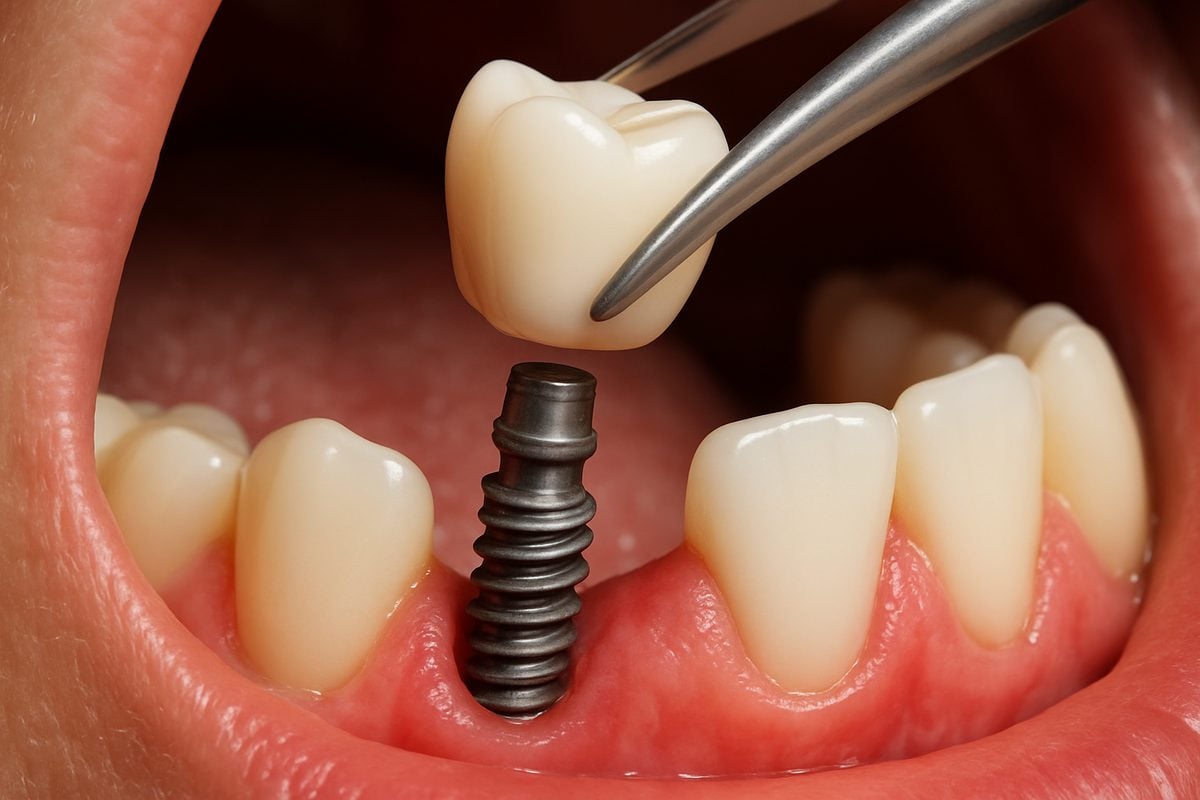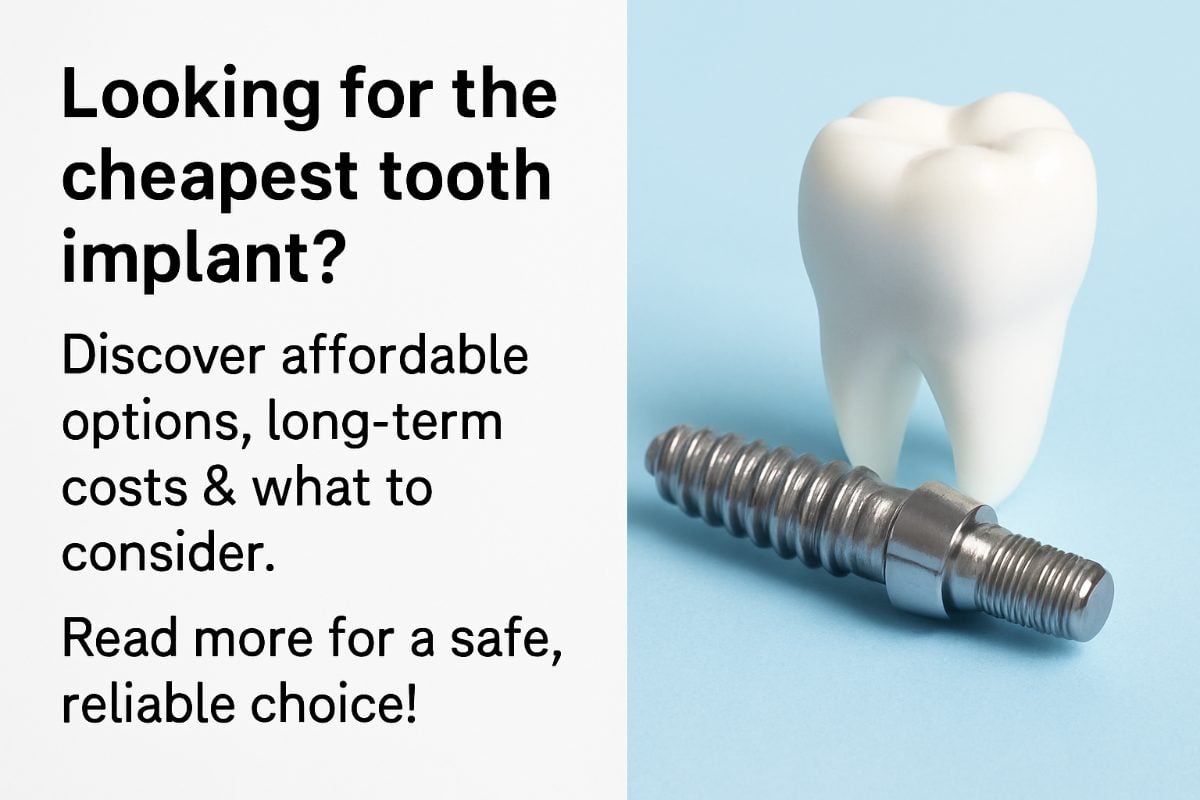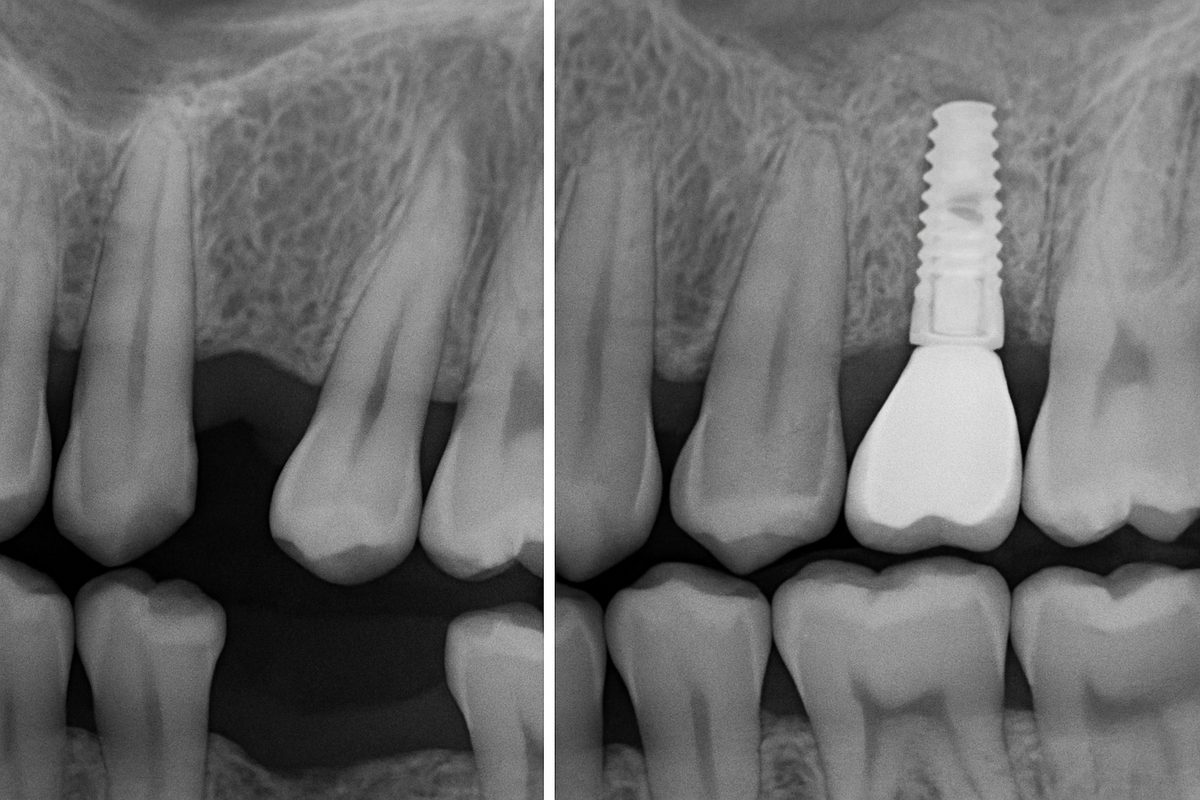Blog - St. Louis, MO
Tips, Facts, And The
Latest In Dentistry

Dental Dentures Implants: Are They Right For You?

Dental dentures implants are implant fixtures that support full or partial dentures for people who have lost several teeth or need a more stable alternative to traditional removable dentures. This short guide is for anyone who wants a clear, quick overview of whether dental dentures implants could be the right choice. You’ll learn what they are, who makes a good candidate, the main solution types, benefits and risks, the treatment process, costs, and how to take the next step.
What are dental dentures implants?
Dental dentures implants are dental implants used as anchors for dentures or prosthetic teeth. Unlike traditional dentures that sit on the gums and rely on suction or adhesives, implant-supported dentures attach to implants placed in the jaw. Examples include a single implant with a crown to replace one tooth, multiple implants that secure a partial denture or bridge, and full-arch implant systems that support a complete denture.
Who is a good candidate?
Good candidates are people missing multiple teeth, those with loose or uncomfortable removable dentures, or patients who want better chewing and speech function. Candidates should have enough jawbone for implant support or be willing to undergo bone grafting. Some people need extra evaluation—heavy smokers, those with uncontrolled diabetes, or people with certain medical conditions may need medical clearance or tailored plans.
Types of implant-supported denture solutions
Single implants and implant crowns
A single implant plus a crown replaces one tooth. This is the most conservative implant option and preserves neighboring teeth compared with bridges.
Implant-supported bridges and partial dentures
Multiple implants can support a bridge or a partial denture when several adjacent teeth are missing. This gives more stability than a removable partial and prevents shifting of remaining teeth.
Full-arch options (All-on-X / full-mouth restorations)
Full-arch solutions like All-on-X or All-on-X use a set number of implants (often 4 or more) to support a fixed prosthesis for an entire upper or lower arch. These are used when most or all teeth are missing and aim to restore function and appearance in fewer surgeries.
Benefits and risks to consider
Main benefits include strong stability for eating and speaking, improved comfort, reduced slipping, and preservation of jawbone compared with removable dentures. Implant-supported teeth often boost confidence and feel more natural. Risks include standard surgical risks (infection, bleeding), longer healing time than removable denture options, initial cost, and possible need for bone grafting or sinus lifts. Not all patients heal the same; smoking and certain health issues raise complication risks.
What to expect: process, recovery, and lifespan
Treatment steps: consultation and exam, 3D imaging and planning, implant surgery, healing and osseointegration (typically 3–6 months), and final restoration placement. Recovery usually involves a few days of soreness and a short course of pain control and antibiotics as needed. Aftercare includes good oral hygiene, regular dental visits, and occasional denture adjustments. With proper care, implants often last decades; individual restorations may need replacement or maintenance over time.
Cost and financing basics
Cost depends on the number of implants, need for bone grafts or sinus lifts, type of final prosthesis, lab fees, and materials. Financing options include dental payment plans, third-party medical finance companies, and dental insurance that may cover portions of the restorative work. A consultation provides a personalized estimate.
Why choose a specialized implant center for dental dentures implants
A specialized implant center like New You Smile, led by Dr. James Fetsch, focuses on implant-only care and advanced technology. Their strengths include 3D Cone Beam CT for precise planning, digital scanning, guided surgery systems, and an on-site dental lab for faster, controlled restorations. These tools improve accuracy, reduce surprises during surgery, and speed up turnaround.
Next steps: is dental dentures implants right for you?
To find out, schedule a consultation. Ask about your bone health, treatment timeline, sedation options, expected costs, and before-and-after cases. If you’re ready to learn more, book an evaluation to get a personalized plan and clear cost estimate.




